
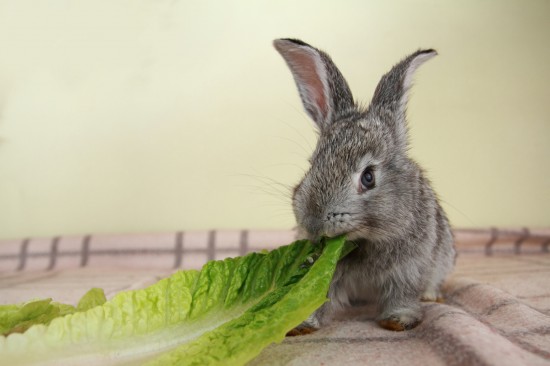
Getting a new family pet is a big undertaking and one that should never be taken too lightly no matter how big or small they happen to be. All animals when you decide to share a home with them, depend on you to take good care of them in every single way. If you are about to get a rabbit, you do need to do all the necessary research on the type of environment you need to set up and the sort of diet they need to be fed so they stay happy and healthy.
In the wild rabbits nibble on lots of things which includes grasses, roots, plants, and seeds they find on the ground. Needless to say, most of these things are pretty low in calories which is why a wild rabbit needs to spend most of their day eating. Kept as domestic pets, a rabbit's diet needs to be as close to what they would eat in the wild and although this may sound hard to do, the bulk of their diet should consist of good quality hay.
However, as with all animals, rabbits do like a bit of variety in their diet and as long as they are getting enough fibre in the form of hay, it's also a good idea to feed your pet a few handfuls of fresh fruit and vegetables together with the right amount of dried food which has to be one that's specifically formulated for rabbits. Along with a well balanced diet that includes plenty of good quality fibre, they also need constant access to fresh clean water.
It's never a good idea to give lots of food to your pet rabbit in one go, but rather split meal times up to two or three times a day. However, you should leave enough good quality hay for them to nibble on throughout the day. You need to bear in mind that rabbits are creatures that like to "graze" continually because by doing this, they keep their digestive systems working properly.
Rabbits need to be fed a diet that is low in fat, protein and sugar but it needs to be a high fibre diet which is why offering your pet good quality hay is so important. The hay needs to be dust-free with the best type being meadow or grass hay and ideally it should still be slightly green.
However, young bunnies can be fed alfalfa hay which is higher in protein and therefore provides more energy which they need because they are still growing, but you need to wean them off alfalfa hay as they get older and this is especially true if you are also feeding an amount of dried rabbit food to your pet.
As a rule of thumb, you need to feed you pet bunny anything from 75 to 100 grams of good quality hay a day making sure you place it in a hay rack to prevent your pet from soiling it. Using a hay rack also means you can keep a note of how much hay they are actually eating.
If you have just got a young bunny that's under 12 weeks old, you should not feed them any fruit or vegetables to begin with. If you feed either of these too early on in their lives, rabbits have a tendency to develop digestive problems. You should introduce both fresh fruit and vegetables to their diet very gradually as they grow older to avoid this happening.
The amount of fresh fruit and vegetables to give your rabbit once they are older than 12 weeks, is between 1 to 2 handfuls a day but this does depend on the size of your pet which is something you need to take into consideration. All fresh food needs to be good quality and not spoilt in any way. You should not feed them any fruit or vegetables that may have been frozen either.
To begin with, you may find your bunny turns their noses up at the fresh some fresh food you offer them which is why it's a good idea to introduce things slowly one at a time. This allows you to see which foods they really like and the ones they don't like the taste of.
There are certain foods you should not give to your pet rabbit which includes the following because they are poisonous to them:
These days there are some very good quality alfalfa meal-based pellets on the market which have been specifically formulated for rabbits. They have been made up to provide just the right amount of nutrients, vitamins and minerals they need in their diets. Another good reason to feed pellets is that by doing so, your rabbit cannot become "picky" which many of them do when they are fed mixes. They soon learn to take out the tasty bits and leave anything they are not so fond behind which is not only bad for them but very wasteful too.
The thing to bear in mind is that any dried food you offer your pet should be given as a complementary foodstuff that's fed alongside hay, fruit and vegetables rather than on its own. Rabbits under the age of 12 weeks old need a lot more in the way of vitamins, minerals and nutrients because they are still growing. For this reason you should feed them as much as they want to eat. However, once any fruit and vegetables are introduced to their diet, you should start reducing the amount of dried food you give them.
Rabbits come in all shapes and sizes so it really does depend on how small or big your pet happens to be as to how much you feed them. An averaged sized rabbit should be fed around 50 grams of dried food a day but you need to keep an eye on their weight and to regularly check if their droppings are soft. If they are, you are more than likely feeding them too much dried and would therefore need to reduce the amount accordingly.
Rabbits tend to be on the "greedy" side and if left to their own devices which means our long-eared domestic bunnies have a tendency to put on too much weight. However, this does not mean you cannot give them the occasional tasty treat making sure they are healthy, high fibre and low in sugar ones! The best treats for rabbits are made out of natural ingredients and the ones to avoid giving your pet are the sugary, sweet ones.
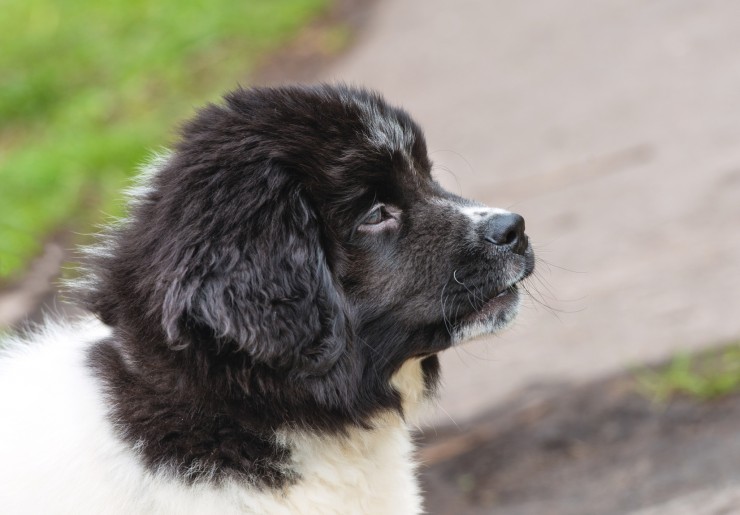 The Karakachan Dog - A Rare Gentle Giant
The Karakachan Do
The Karakachan Dog - A Rare Gentle Giant
The Karakachan Do
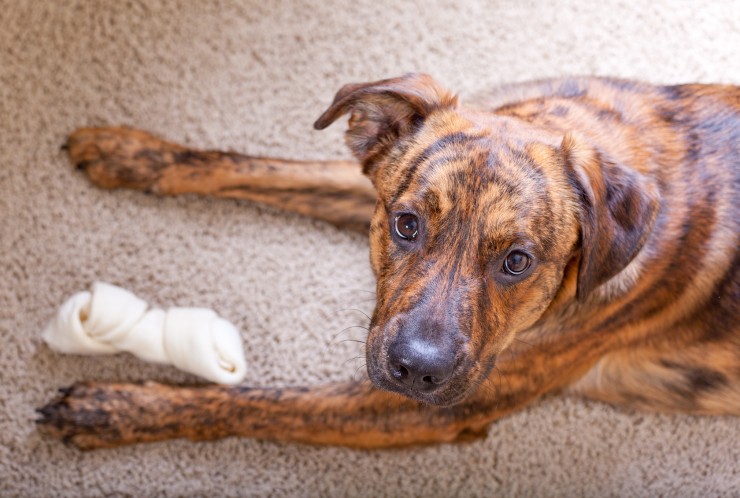 Why Do Some Dogs Scratch And Tear Up Carpets?
Why Do Some Dogs
Why Do Some Dogs Scratch And Tear Up Carpets?
Why Do Some Dogs
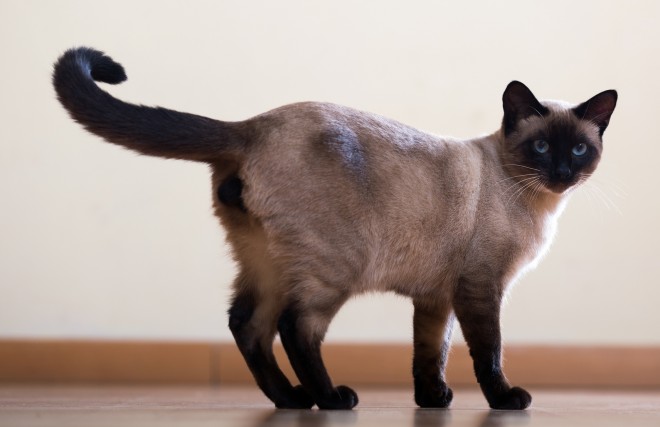 Five Breeds Of Cats That Tend To Get On Well With Dogs
Five Breeds Of Ca
Five Breeds Of Cats That Tend To Get On Well With Dogs
Five Breeds Of Ca
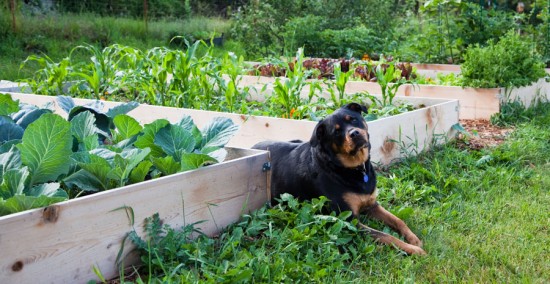 Organic Pet Food - Great Or Gimmick?
Organic Pet Food
Organic Pet Food - Great Or Gimmick?
Organic Pet Food
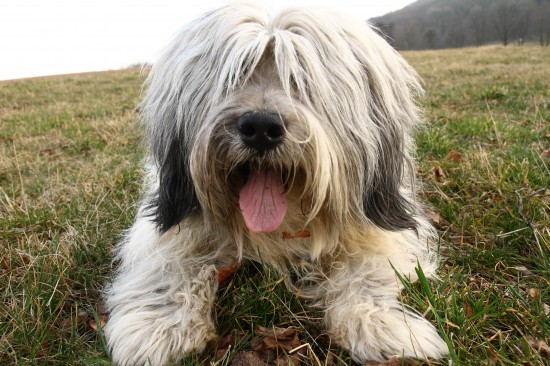 Polish Lowland Sheepdog Hereditary Health And Health Testing
Polish Lowland Sh
Polish Lowland Sheepdog Hereditary Health And Health Testing
Polish Lowland Sh
Copyright © 2005-2016 Pet Information All Rights Reserved
Contact us: www162date@outlook.com